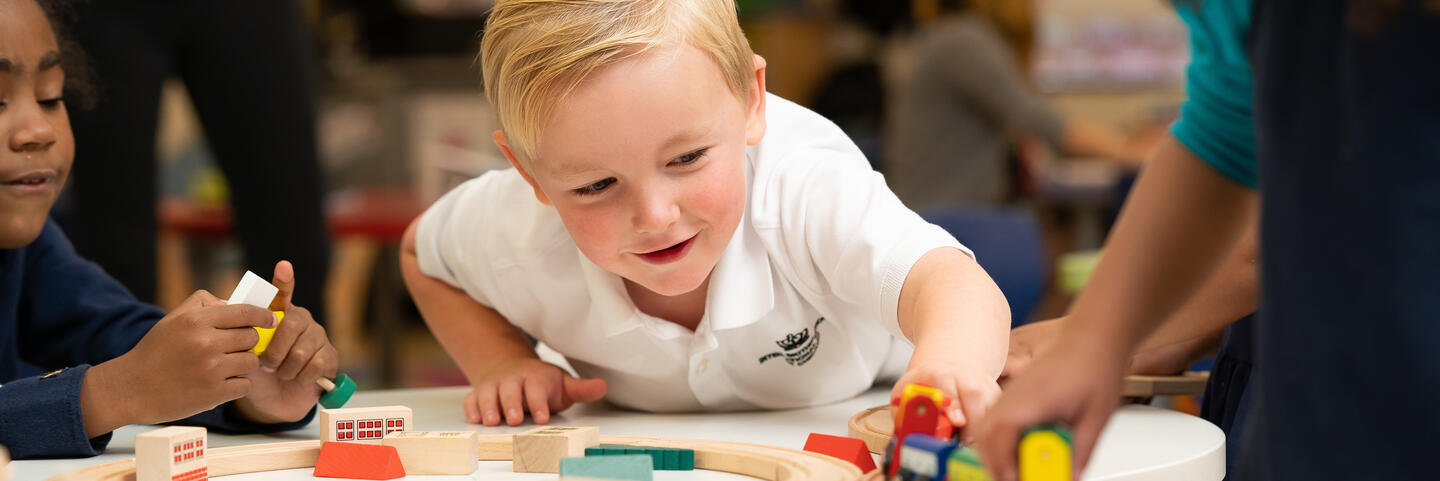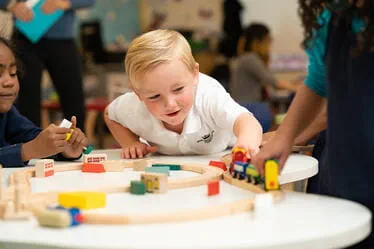As part of Early Years Foundation Stage, children play, explore, create, and think critically through activities shaped by seven Areas of Learning and Development. We use these inter-connected areas to promote children’s individual interests and unique learning needs.
The Prime Areas are crucial to igniting curiosity and enthusiasm for learning, and for building the capacity to learn, form relationships and thrive. Learning is strengthened and applied in the Specific Areas. The activities, stories, and games through which learning takes place in each area are challenging, exciting, and fuel progress towards learning outcomes. Through a mix of child-initiated and adult-led experiences that are relevant to the children’s lives, we also encourage effective listening and positive behavior.
Communication & Language
Children experience a rich language environment and develop confidence and skills in expressing themselves while speaking and listening in a range of situations. We also spark interest in reading and writing. Children study French and Spanish as part of this area, learning greetings and introductions, and how to speak about colors, numbers, food, and transport. Children also explore the associated cultures.
Physical Development
Enjoying opportunities to be active and interactive, children develop coordination, control, and movement. They also learn basic principles of health and self-care, including the importance of physical activity and healthy food choices.
Personal, Social & Emotional Development
This area involves helping children develop a positive sense of themselves and others. They adopt social skills and learn about making relationships. We also learn how to manage feelings and demonstrate appropriate behavior. The overarching theme is self-confidence and self-awareness.














